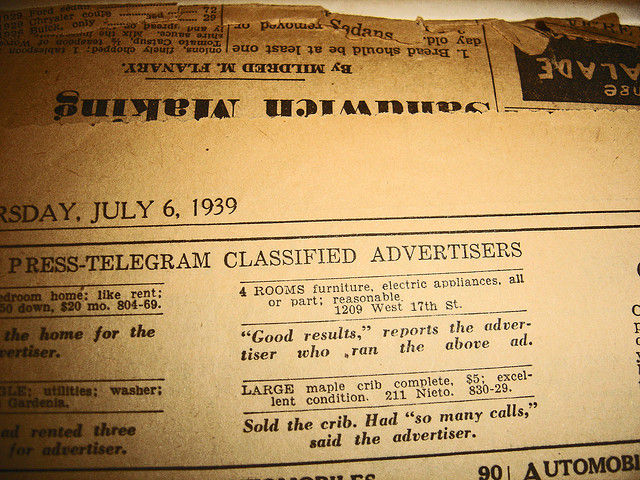
1939, back when ads used to be safe. (credit: Flickr user: Lulu vision)
Privacy advocates are warning federal authorities of a new threat that uses inaudible, high-frequency sounds to surreptitiously track a person's online behavior across a range of devices, including phones, TVs, tablets, and computers.
The ultrasonic pitches are embedded into TV commercials or are played when a user encounters an ad displayed in a computer browser. While the sound can't be heard by the human ear, nearby tablets and smartphones can detect it. When they do, browser cookies can now pair a single user to multiple devices and keep track of what TV commercials the person sees, how long the person watches the ads, and whether the person acts on the ads by doing a Web search or buying a product.
Cross-device tracking raises important privacy concerns, the Center for Democracy and Technology wrote in recently filed comments to the Federal Trade Commission. The FTC has scheduled a workshop on Monday to discuss the technology. Often, people use as many as five connected devices throughout a given day—a phone, computer, tablet, wearable health device, and an RFID-enabled access fob. Until now, there hasn't been an easy way to track activity on one and tie it to another.